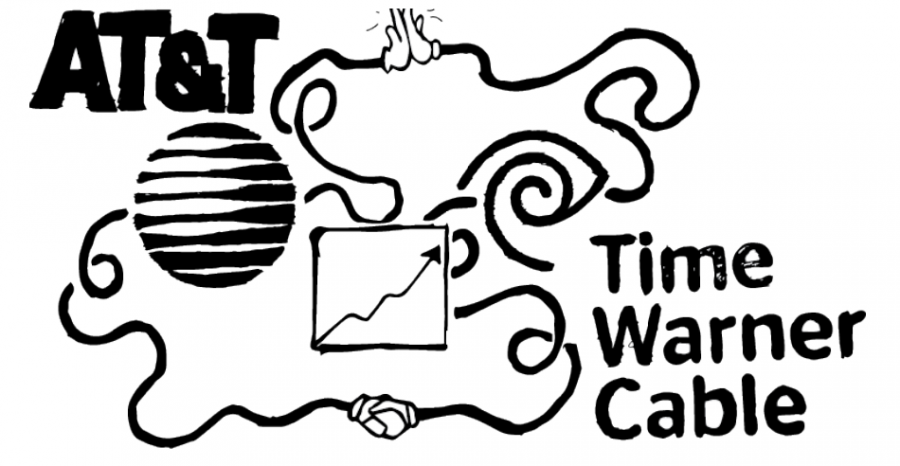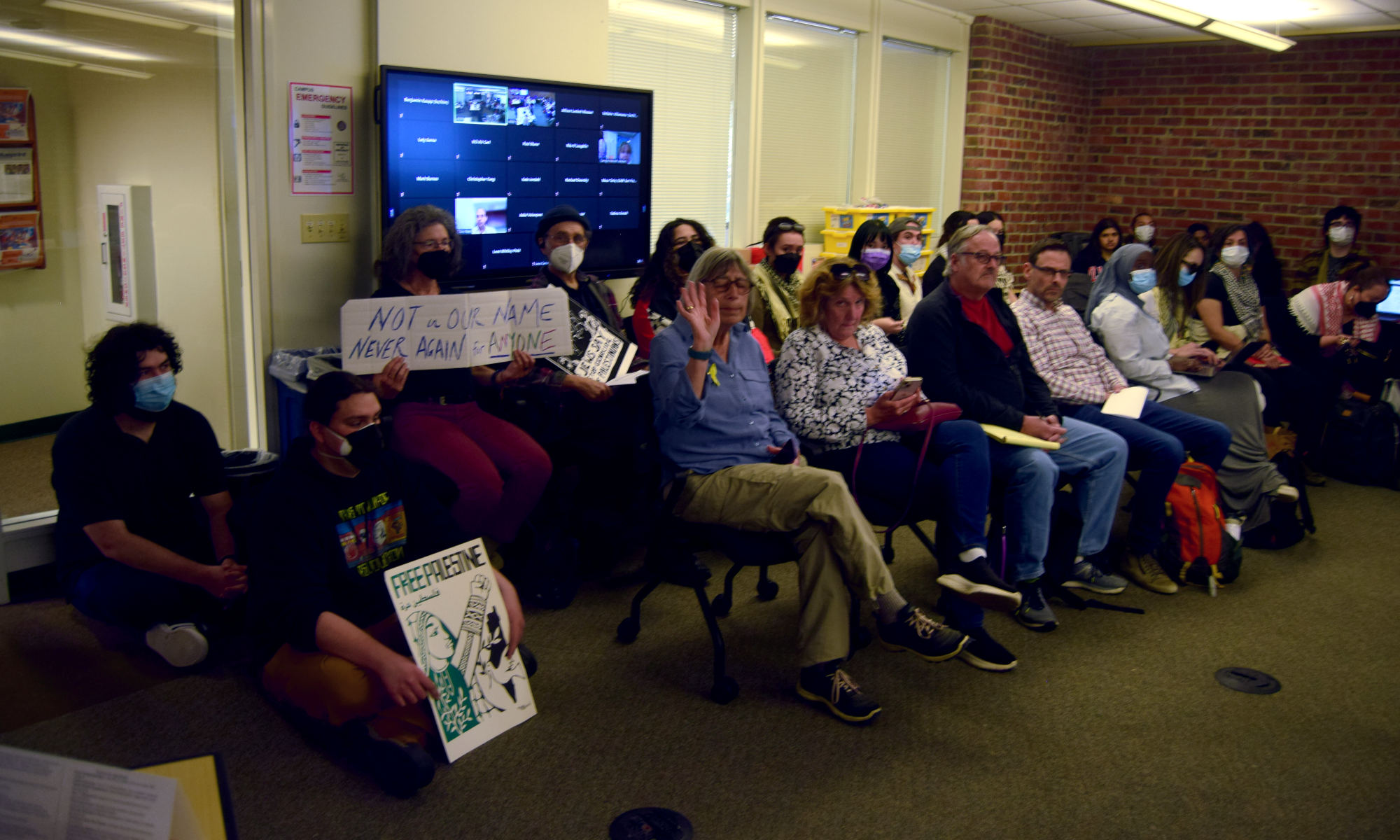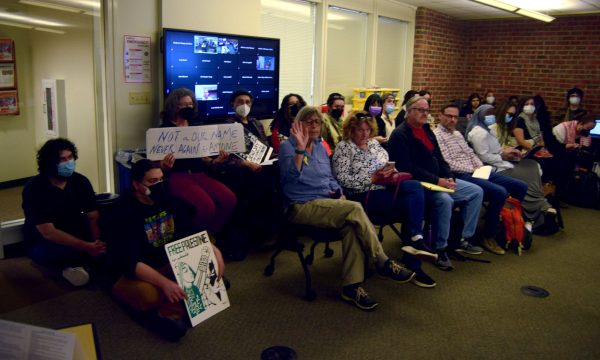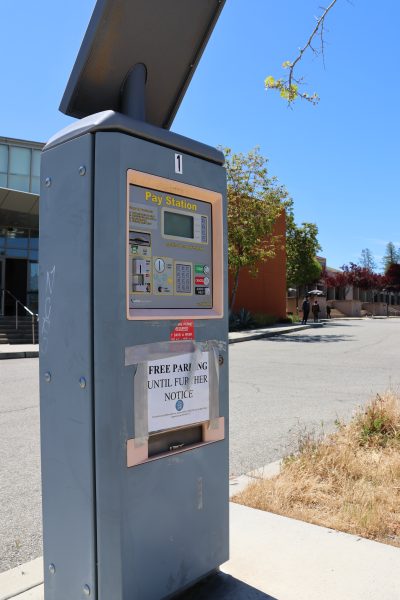AT&T merger: a silent killer that must be stopped
Illustration by Joshua Lopez
November 20, 2016
AT&T’s $85.4 billion acquisition of media giant Time Warner is a terrifying caveat of what the future holds for media companies.
This would consolidate content-creating companies like CNN, HBO, TBS, TNT and Warner Bros movie studio.
AT&T claims the acquisition is an attempt to create a new form of mobile content distribution for their mobile phone and broadband customers who have been abandoning traditional cable in droves for cable alternatives like Netflix and Amazon.
On paper, the merger sounds an innocent exercise of competition, but because of numerous unaddressed concerns regarding the affordability of services and the further monopolization of corporate America, the antitrust division and the federal government should absolutely kill this purchase for good.
At the forefront of this battle is net neutrality – the principle that all internet service providers must allow access to all content and applications regardless of the source. AT&T owns forms of distribution like DirecTV, U-verse broadband and U-verse television, as well as mobile services.
With an already existent monopoly, we must be concerned that AT&T could unfairly favor its own content, especially if it were to acquire Time Warner, the third largest television and entertainment company.
With the control of such a vast library of content, as well as the avenues through which they run, AT&T could charge exorbitant amounts for services, and few would be capable of vying for power.
This would also apply to competing service providers who would have to pay licensing fees in order to broadcast this content. AT&T could also choose to not license Time Warner’s content library with other media companies, thus forcing customers to subscribe to a new service in order to access that library.
It is in AT&T’s interest to license their media with other service providers, as it is one of the main sources of income for a media company.
Sen. Bernie Sanders, I-Vermont, wrote an open letter to acting assistant attorney general Renata B. Hesse, urging her to block the merger, stating “When one company owns both the content and means of distribution, there is no motivation for a company to provide additional choices to consumers.”
Unfettered capitalism is a myth, and thus need be restricted when one corporate entity amasses too much influence in either the economy or the political structure.
As demonstrated by Comcast’s recent failed attempt to purchase Time Warner, wherein Comcast would’ve controlled of over 54 percent of the cable and broadband market, there are certain limits of the competitive market that simply shouldn’t be tested.
In the name of stable market capitalism and less corporate influence in Washington, The department of justice must block this merger at all costs.
Already, AT&T dumps nearly $11 million into congress every year, four times as much as its next competitor. More than 85 percent of Congress receives contributions from AT&T.
This colossal corporation maintains an interest in controlling the entire media and television market.
Currently, 100 AT&T lobbyists, many of whom former congressmen, are readily perched to go for a kill that could be a devastating blow to competition and net neutrality.






























